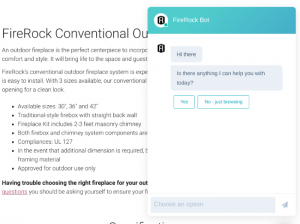If you have a small business, the last thing you want is to get into legal trouble for some reason. Small companies and startups can be particularly vulnerable to the hazards presented by the legal system.
They often lack the resources and knowledge about how to navigate complex legal issues. If you are the owner or principal of a small business, you should be aware of the risks that could arise from pursuing an uncertain course of action.
However, there are ways that you can mitigate these risks and still provide an essential service to your clients and customers.
Hire an Attorney/Registered Agent
Lawyers do not only exist to represent you in court when there’s litigation. You need a competent attorney to advise you before you make critical business decisions.
Having an attorney on retainer protects you from making avoidable mistakes that could have serious legal consequences.
In addition, you need a registered agent who serves as a liaison between your business and the government. Having a registered agent is part of business formation requirements in most states.
Anyone can be your registered agent; good thing if they are your lawyer too. But while you can also be your registered agent, you must note that adding such responsibility on top of your obligations as a business owner might reduce your productive output.
Register for a DBA
Filing for a DBA which stands for Doing Business As is required when using a different name from your personal or business name to conduct business operations.
Sole proprietors have to file for a DBA if they choose to do business under a name that’s different from their name. LLCs and corporations can also file for a DBA if they want to do business under a name that’s different from their registered business name.
Besides giving you personal privacy, using a DBA is a smart way to launch new ventures that may be different from your mainstream offerings. You can use your DBA name to open accounts, sign contracts, write cheques and carry out other business operations.
Even though the DBA does not take life as a separate business entity, it helps you to protect your existing structure. Sole proprietorships and general partnerships are two business structures obligated by law to file for a DBA. You may face punishment if caught doing business under a fictitious name without a DBA.
Differentiate Yourself from Your Business
Besides the fact that it’s a legal obligation for certain owners, one key reason why you need a DBA is fully explained in this section.
Most small business owners are sole proprietors. And sole proprietorship, by its legal implication, means that you are not separate from your business. As a sole proprietor, you can incur liabilities or personally be sued for business dealings.
Most small business owners go the extra step of registering their business as a limited liability company or corporation. Yet, not every business has to do this, at least not initially. So, how do you protect yourself and your business as a sole proprietor?
The practical approach to this is to act as though you were a separate entity from your business (even though, technically, you are not). That means keeping different bank accounts and distinguishing personal assets from business assets.
This habit helps you be more responsible in your business dealings and, thus, less exposed to risks.
Maintain Good Employment Practices
If your business employs people, you are responsible for treating your employees right and enforcing fair employment practices. Certain illegal practices can bring your business down.
As a business owner, you must be familiar with all the laws regarding employment and employee relations in the workplace. Particularly, you should be careful not to infringe the rights of employees via workplace harassment, discrimination, or other unfair labour practices. So, you should study the laws to know what lines you should not cross.
Provide fair opportunities to your employees and reward them based on performance standards that must have already been communicated to them. Note that these legal obligations apply through recruiting, and retaining employees, as well as terminating their employment.
Put all Agreements into Writing
Whatever agreement you enter into concerning your business – with the government, partners, organizations, employees, contractors, or other third parties – ensure that the details of such an agreement are documented.
This protects your business and serves as evidence in case any dispute emerges. These days, people can reach agreements so easily over phone calls or emails that they don’t formalize it by appending their signatures to an official document.
This is another area where you need an attorney. They will draw up contracts and agreements on your behalf and advise you on what details should be captured in each agreement.
It is also important for taxation. For example, the IRS requires business owners to “file information returns for payments to nonemployees and transactions with other persons.” How can you comply without proper documentation of such transactions?
Cybersecurity
Modern businesses cannot escape conducting all or some of their affairs online. And that’s why cybersecurity is essential. Your online activities as a business have legal implications.
If your business loses or leaks customer data, for instance, you may be sued. Or, if your network shuts down, you may not be able to perform critical operations, and that may attract legal action from clients, suppliers, customers, or other partners.
47% of small businesses experienced a cyber attack in the past year; there is more evidence that cyber attacks against small businesses are increasing. Most attackers view small businesses as soft spots, mainly because they are wont to pay the least amount of attention to cybersecurity.
Cybersecurity is a never-ending process of mounting defenses against cyber threats and risks. So, your business is never fully secured. Instead, you must always find and close cybersecurity gaps in your small business operations.
Conclusion
Running a small business in the US is all about taking risks and being flexible. But just like any other type of business, there are risks to running it right — particularly when it comes to the legal system.
A successful small business owner should be aware of local, state, and federal laws that could affect them personally and their business.
Business & Finance Articles on Business 2 Community
(44)






